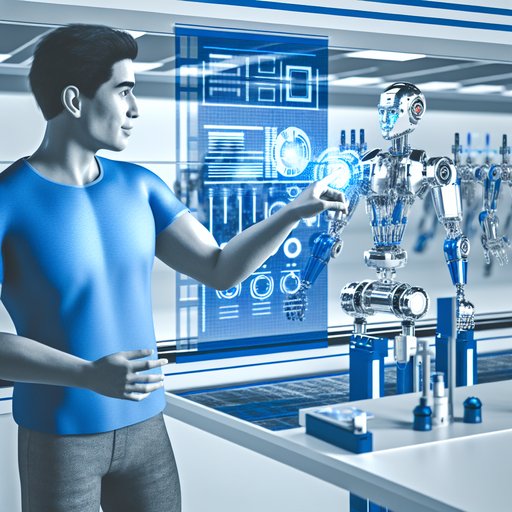Scenario or Question
Imagine a world where AI seamlessly integrates into our daily work routines, acting as a perfect co-pilot that enhances our productivity and efficiency. But, as we rely more on AI, do we risk becoming over-dependent on technology, losing vital skills and autonomy? This dilemma underscores a pressing question: is AI as a co-pilot a boon for productivity or a pathway to dependency?
What’s Happening Now
Today, AI tools such as OpenAI’s ChatGPT and Google’s Bard are increasingly woven into the fabric of our professional lives. These technologies serve as assistants in writing, coding, and data analysis, empowering individuals and companies to achieve more in less time. Companies are investing heavily in AI development to maintain a competitive edge. For instance, AI-enhanced customer service bots are handling queries with increasing sophistication, while AI-driven analytics platforms offer insights that were previously out of reach.
The promise is alluring: AI as a co-pilot can reduce mundane tasks, allowing humans to focus on intricate, strategic thinking. This collaborative potential is where AI finds its most significant strength, supplementing human capacities rather than replacing them.
Why It Matters
The integration of AI in daily workflows holds transformative potential across industries. In healthcare, AI assists radiologists in diagnosing diseases faster and with improved accuracy. In finance, it analyzes market trends to predict investment outcomes, potentially revolutionizing decision-making processes. However, with these advancements come concerns about over-reliance on technology.
As AI becomes an integral part of our workflows, there’s a risk of diminishing human skills. Just as dependence on calculators has eroded basic arithmetic skills, reliance on AI for tasks such as writing or data analysis might lead to the atrophy of critical thinking and creative problem-solving abilities. The key ethical dilemma isn’t just about skill degradation but also about how this dependency might exacerbate issues of accountability and transparency in decision-making processes.
Conflicting Views or Stakeholders
On one hand, proponents argue that AI enhances human capabilities and drives innovation and growth. They advocate for the potential of AI to democratize expertise, making highly specialized knowledge accessible to all. For instance, AI can help non-specialists perform advanced data analysis, thus fostering inclusivity in innovation.
On the other hand, skeptics warn against the over-reliance on AI, emphasizing the risks of accuracy errors, biased algorithms, and security vulnerabilities. There’s also the question of economic impact – if AI assumes more responsibility, what happens to the jobs traditionally held by humans? Workers in industries heavily disrupted by AI might face significant employment challenges.
Future Outlook or Warning
Looking forward, the trajectory of AI as a co-pilot will likely hinge on finding a balance between leveraging its benefits and mitigating its risks. Companies need to cultivate a culture of “human-AI partnership” where AI is seen as an augmentation tool rather than a replacement. Frequent upskilling and education programs will be essential to ensure that human skills evolve alongside technological advancements.
Moreover, developers and companies should prioritize creating transparent, explainable AI systems to foster trust and ensure decisions made in collaboration with AI remain accountable. Ethical considerations and robust regulations should guide AI’s integration to prevent misuse or over-dependence.
Ultimately, while AI as a co-pilot holds immense potential to revolutionize productivity, it is imperative to remain vigilant against becoming overly reliant. The future depends on developing an equilibrium where AI enhances human capabilities without eroding our independence and skills. Balancing innovation with ethical responsibility will define the success of AI as our co-pilot in the years to come.










